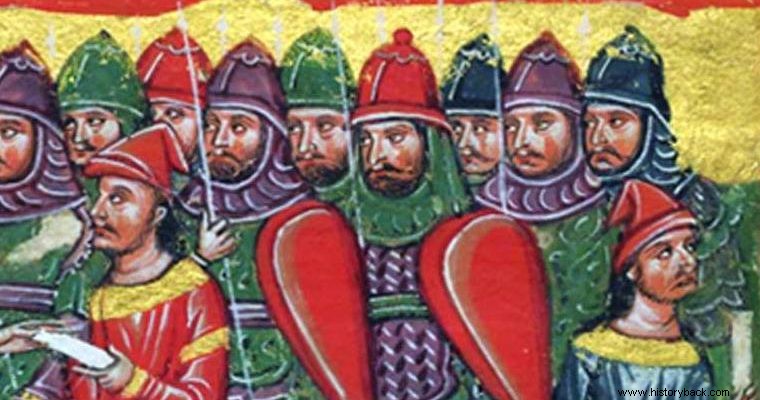
Verati of today's Albania belonged for centuries to the Byzantine Empire. Researchers identify it with the ancient Greek Antipatria, while the Byzantines called the city Pulcheriopolis and later Belgrade (white city).
The emperorMichael VIII Paleologos after the victory in Pelagonia (1259) and the recovery of Constantinople (1261) he was confronted by the French of the kingdom of the Andeans in Sicily. Charles d'Anjou claimed the lost Latin possessions in Greece appearing as a claimant to the throne of the Latin Empire of Constantinople.
In 1272, Charles founded the "kingdom of Albania" which included all his possessions in the region, Durres, Avlona, Verati, Voutroto. Michael reacted and managed to recover Verati and Bouthrotos. In 1279, however, Charles took advantage of the Greek dissension and allied himself with the Despot of Epirus Nikephoros against Michael, even sending to Northern Epirus the Burgundian general of Hugo de Sully, known as "Red", because of his earldom.
At the end of August, beginning of September 1280, the "Red" was ordered to occupy Verati, which was a strategic road junction on Egnatia. The "Red" with 2,000 knights and followers and 6,000 footmen easily captured a nearby fortress and arrived just outside the city, starting its siege.
The danger to the Empire was mortal. If Verati fell, the road to Macedonia would open . And if the attack of "Erythra" was combined with the forces of the Despotate of Epirus and the Principality of Achaia, the entire European imperial territories were in danger.
Counterattack
Michael reacted immediately by assembling a force to lift the siege of the city, which he entrusted to one of his best generals, the mega domesticus (commander-in-chief) Michael Tarchaniotis . With him was also the great general Ioannis Synadinos.
In the meantime, winter had come and the city was holding. By the beginning of December, however, the French had captured most of the fortresses surrounding the city, cutting it off completely.
The Byzantine army arrived at Verati in the early spring of 1281. Tarchaneiotis, cleverly, managed to overwhelm the French with ambushes and raids, while supplying the garrison with food and weapons. The food and supplies were tied to rafts that were allowed to drift in the current of the river Apsos which runs through the city.
After that "Erythros" decided that his only hope was to crush the army of Tarchaniotis in a line-by-line battle . So he moved, with 25 of his elite guards, to perform reconnaissance. But he fell into an ambush by the Byzantines. "Red's" horse was killed, as were many of his guards. He himself was taken prisoner.
Those of his guards who survived returned in panic to the French camp and informed about it. Immediately there was panic and the French, abandoning everything, began to flee towards Avlona. But Trchaneiotis would not let them leave like that.
Taking advantage of the panic, he attacked them with all his forces and literally annihilated them. Few Frenchmen escaped. Most were killed or captured, while their siege engines also fell into the hands of the Byzantines. It was the ultimate victory, the most important that the Empire had achieved since the time of Pelagonia.
The super-bottle "Red" was led in irons to the City with the officers and suffered the extreme humiliation of being paraded down the main street to the cheers of the crowd. On the other side, Charles, enraged by the defeat, planned a new campaign but Michael caught up with him by beating him "at home", with the "Sicilian Vespers".
